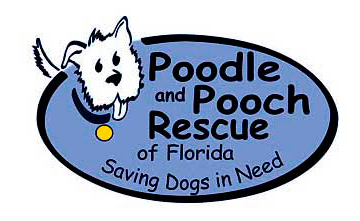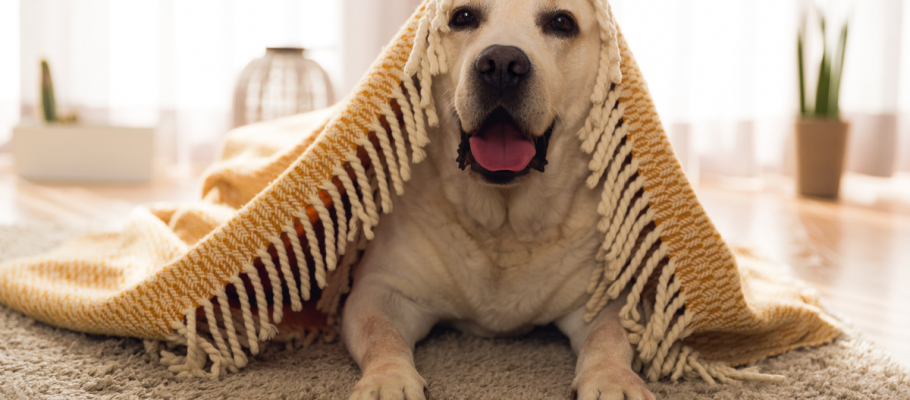
Pop quiz.
Which of these are true?
- Approximately 500,000 pets are impacted by house fires each year
- It’s estimated that 40,000 to 150,000 pets die annually in fires
- Most fire deaths are caused by smoke inhalation and not the flames
- Nearly 1,000 home fires each year are started by a pet
- Your fire safety plan should include your pets
If you guessed that they are all TRUE, you would be correct!
And since July 15th is National Pet Fire Safety Day, we thought, “what better time to remind” you about the best ways to keep your furry family members safe.
An Ounce of Prevention…
Probably the most surprising of the stats listed above is that 1,000 home fires are started each year by pets. And although some of us might have pups or kitties with mischievous streaks, you can rest assured they don’t usually have “arsonist” personalities.
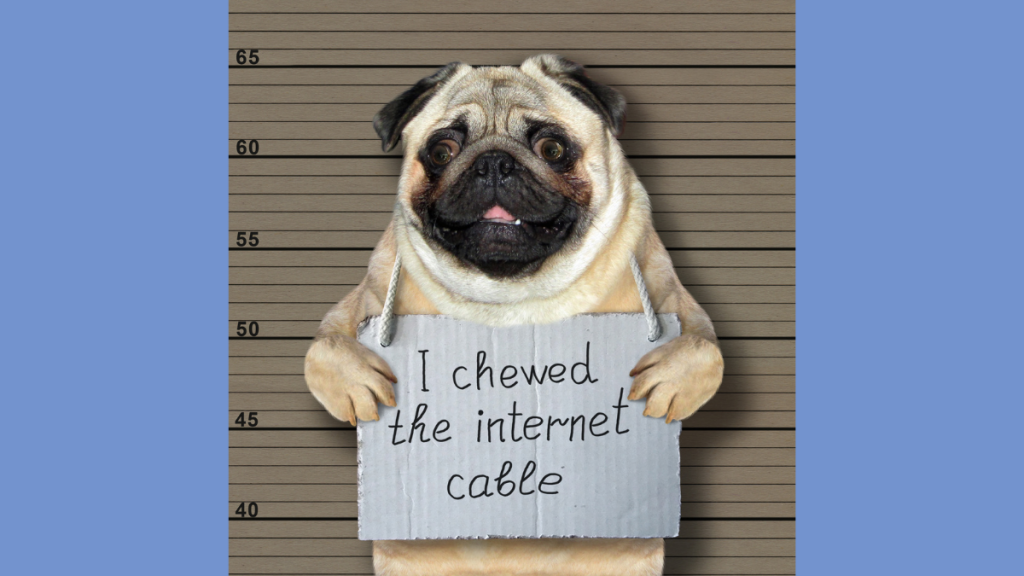
These types of fires typically occur accidentally. So here are some steps you can take to prevent them:
- Never leave open flames unattended.. Wagging tails and curious noses are usually oblivious of the dangers of a flickering flame. Consider using flameless candles and enclosed fireplaces. Hot sizzling grease on the stove can be equally dangerous to your pet’s safety as well as a possible fire hazard.
- Cover or remove the knobs of a stove when not in use. Whether you have an agile dog (or cat) that gets up on the counter when you’re not looking or a large dog that can bump a burner on with a paw or nose, you don’t want any cooking taking place while you’re away.
- Secure all wires and cords. A chew-fest on a cable or cord can turn disastrous for your canine or feline. These might be especially tempting to a bored puppy or an older dog that struggles with separation anxiety. Regularly check your home for these hazards from the eye level of your pet. And take extra care during the holidays when a pet might come across an unusual cord, like Christmas lights.
- Replace outdoor glass bowls with pet-specific items. A clear glass water bowl left on a wooden deck can act as a magnifying glass in the sun and start a fire on the wall or another close-by object.
A Pound of Advice…
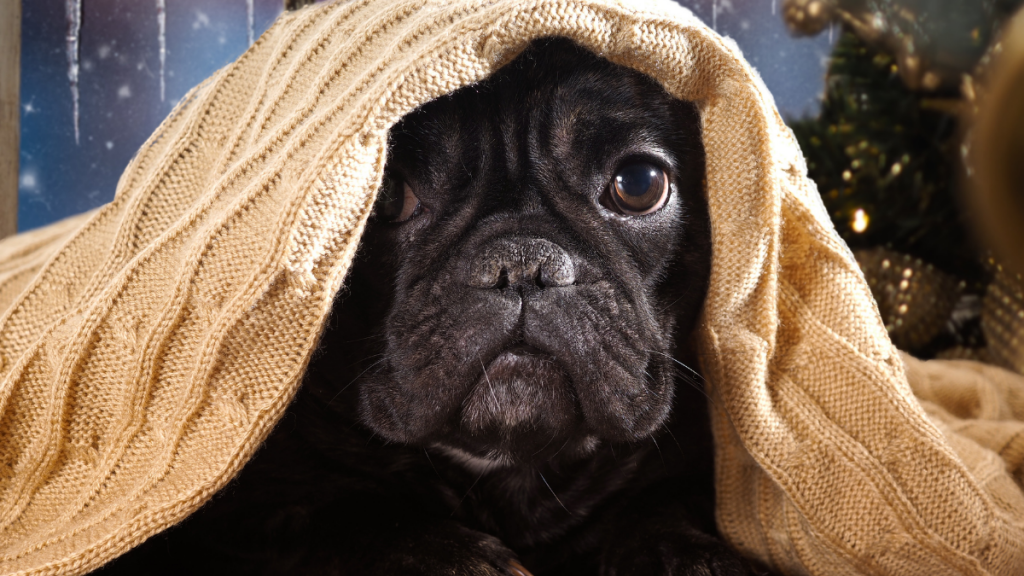
Involve your four-legged family members in a fire plan. Think through all the scenarios and choose the best exits from every room. Rehearsing the plan with family members and your pet will make it familiar to everyone.
Store extra leashes and carriers near the different exits in case you have to get everyone out quickly. In the commotion that might be going on outside—neighbors yelling, fire crews working, trucks rushing, etc.—it’s critical to keep your pet restrained and safe.
Assign roles to family members. If you have more than one pet, it’s helpful if each person knows which pet to grab on the way out.
Know the places your pet might hide if frightened. Often the chaos can cause a pet to run for cover rather than head to safety. If you have thought through where these places are and made sure everyone is aware of them, it’s easier to locate them in a hurry.
Leave a door that your pet is used to going out open. Then if you are unable to find them when you are headed out, call them from outside that entrance.
A Ton of Thought…
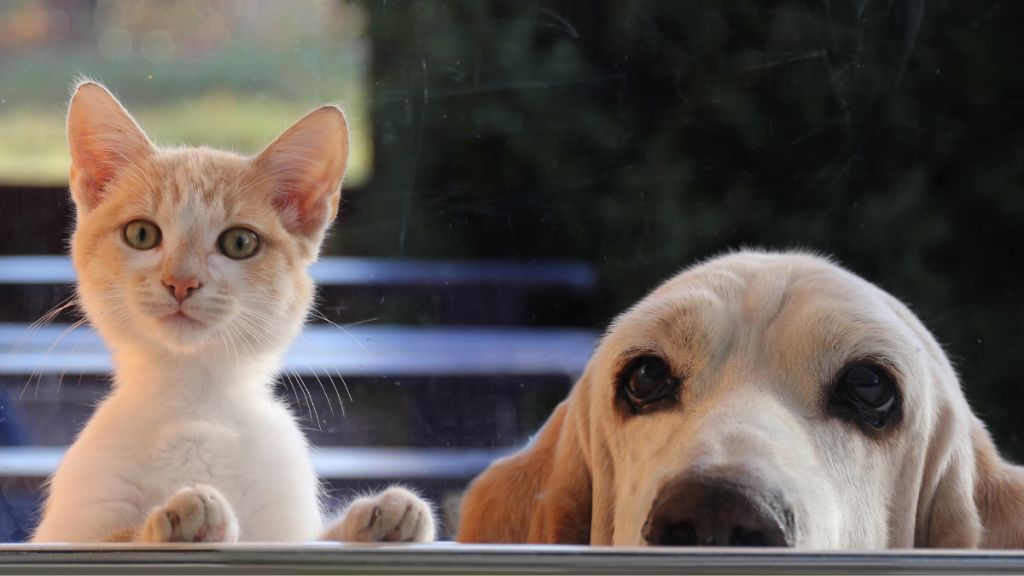
Help emergency crews save your pets when you’re not home by alerting them to who is in there. A pet fire sticker placed in a front, visible window can have listed how many pets and what type are in your home. Be sure to leave your cell phone number on this sticker.
The ASPCA provides a FREE pet safety sticker here. (They will also request a donation.)
Additionally, it’s helpful to have your pet confined to one area of the home, preferably near an accessible exit. (You could place your pet fire sticker on this window.) Being confined prevents them from hiding somewhere in the house, and it makes it easier for fire crews to find them if you have several pets.
At PPR…
Our pets are irreplaceable, and we know that yours are too. Take these simple steps to keep everyone safe. Your pet relies on you.
